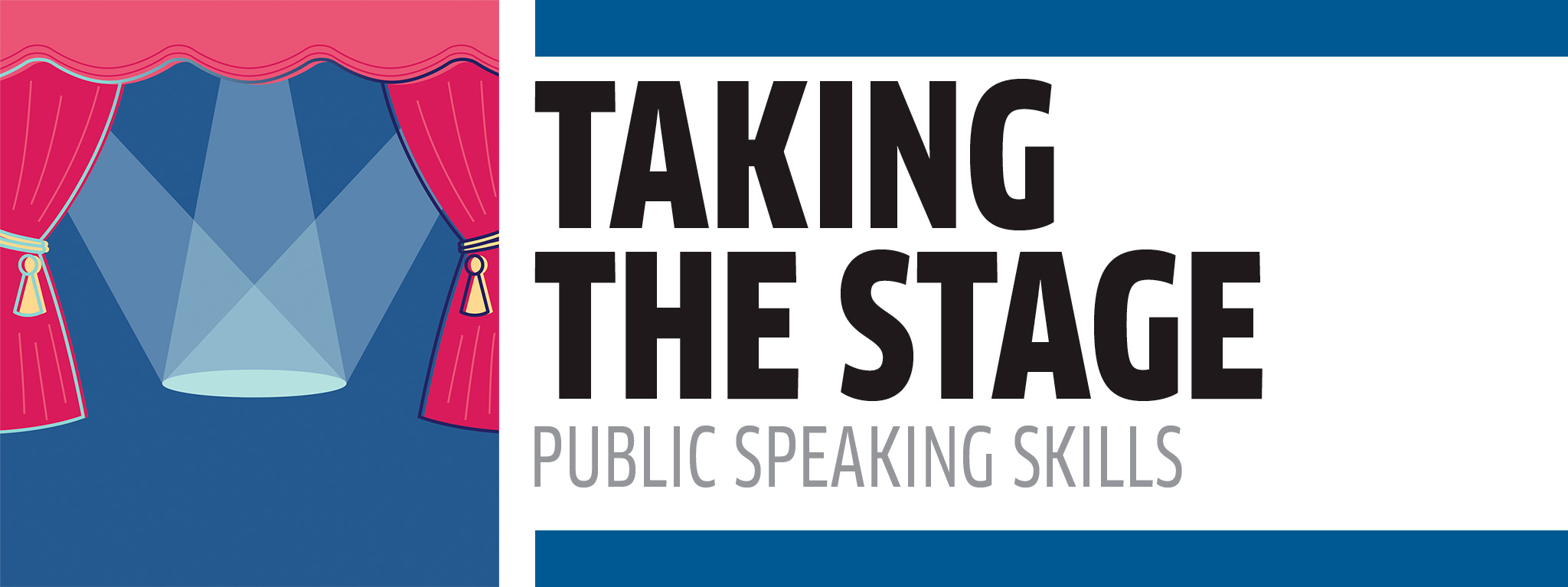
Whether your idea of success is working in perfect isolation or persuading crowds of thousands, it’s likely that you’ll need to talk in public every now and then. Are you comfortable with being center stage?
According to the Wall Street Journal, public speaking is the biggest fear among Americans—even death takes second place! It’s highly unlikely that we’ll get pelted with rotten tomatoes, even if we do mess up a speech—so what, exactly, are we so afraid of, and what can we do about it?
Fear of speaking
The fundamental fear is that people will reject us en masse—and rejection is literally painful. A 2013 study at the University of Michigan found that the brain releases the same chemicals in the face of social rejection as it does in response to physical pain. When we say rejection “hurts,” we’re not being metaphorical. Some evolutionary psychologists also argue that the fear of public speaking taps into the ancient part of our brain that believes if we lose social support, we’ll be left alone, not just to sulk, but to starve. It’s not surprising that so many of us fear public speaking, but it’s probably time to become more proactive about it.

in good company
According to leadership consultant Beverly D. Flaxington, writing in Psychology Today, three out of four people fear public speaking. Despite this, most of them speak perfectly well when it comes to it.
ALL HAIL
In 2013, UK sound consultant Julian Treasure devised a useful acronym to help you inspire your audience, and ensure that they will want to hear what you have to say.

Get in the right mood
Some researchers argue that our brains contain cells called “mirror neurons” that not only notice what somebody else is feeling but produce an image of that feeling in us, too. If you’ve ever flinched when someone else got hurt, or caught the giggles from a friend, that’s your mirror neurons at work. You can use this in public speaking. If you are excited by your subject, the audience will mirror your enthusiasm.
Be generous to the audience
The popular educational TED lectures advise speakers to give the audience something to take home with them—an insight they can apply to their own lives—and to think about benefiting them rather than selling to them. We can all spot a mechanical pitch, and we usually feel pressured rather than engaged. Instead, see yourself and your audience as members of the same common humanity, and think about how to speak so that they’ll feel all the better for knowing what you have to share.
See it as a skill
Public speaking isn’t a measure of your inherent worth: some of the finest people in the world might mumble and drone if you put them in the spotlight. Instead, adopt a growth mindset: you’re a lifelong learner, and public speaking is just one thing you may need to improve with practice.
Don’t just read it out
Finally, a note on notes. Use them if you want to, but don’t write a script that you’ll deliver verbatim. It takes an experienced performer to deliver blocks of text with an air of freshness, and if you’re reading aloud, you have the added problem of staring at the page instead of looking at your listeners. Keep your notes to brief points you can grasp at a glance, and use them as jumping-off points to remind you of your key ideas. From that structure, you can speak directly to the audience; it’ll sound much more engaging.
 harnessing your fear
harnessing your fear
A little tension can actually be good for your performance. Anxiety gets adrenaline flowing, and adrenaline gives us energy. You can use that energy to power yourself forward. Put on a confident face, which can feed back into your mood, and remind yourself that feeling nervous doesn’t prove you’re going to fail, it just means your body is gearing up for a challenge.
